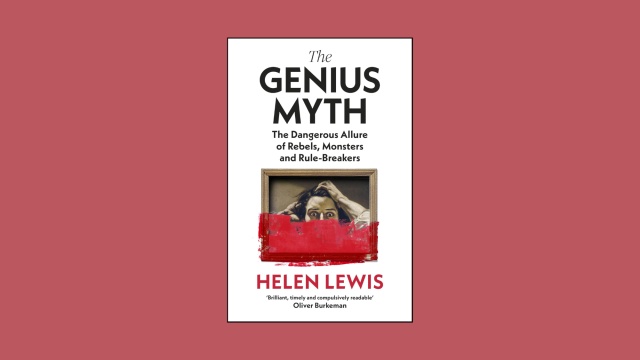
Steve Jobs used to wash his feet in the toilet, would park his car in disabled bays, and if he didn’t like something, he’d shout “This is shit!” at his minions. But the “turtleneck-wearing” Apple founder also oversaw the creation of the Mac and the iPhone, and helped launch Pixar Studios, said Stuart Jeffries in Literary Review. He was very much one of the type defined by Helen Lewis in her entertaining new book as the “genius asshole”.
“The Genius Myth” takes a sceptical look at a concept that has long been used to explain exceptional achievement. Lewis doesn’t deny that certain individuals have “created world-changing work”, said Lucasta Miller in the FT. Her goal is not to debunk Shakespeare or Picasso. Her “beef” is with the mythology surrounding genius, and the assumptions it gives rise to: that certain people (invariably men) are “innately better than others”; and that they got where they did through their own towering brilliance, without being significantly helped by others. Written in a “fresh and unpretentious” style, this is a “witty and timely critique of a perennially problematic concept”.
This “lively book is stuffed with anecdotes” about “clever men behaving badly and then claiming their ‘genius’ as an alibi”, said Kathryn Hughes in The Sunday Times. Einstein drew up a contract for his first wife, Mileva Maric, demanding she bring him three meals a day and “stop talking to me if I request it”. Jackson Pollock would have been a “non-functioning alcoholic” had his wife, Lee Krasner, not sacrificed her own artistic impulses to care for him; even so, he treated her abysmally. Lewis argues that, like the Greek and Romans, we’d be better off ascribing genius to individual works rather than their creators, said Mark Nayler in the TLS. “‘War and Peace’ is an act of genius,” she writes. “Leo Tolstoy was a demanding aristocrat who went very peculiar indeed.”
It’s perfectly sensible to demand that we stop putting people “on pedestals” just because they happen to be talented, said Houman Barekat in The Guardian. But there’s a sense that in advancing this argument, Lewis is behind the curve. Thanks to the slew of recent articles and books exposing the awful behaviour of lauded artists, belief in innate genius is “probably less pronounced today than at any point since the 1960s”.
Yet the concept of the lone genius hasn’t lost its appeal, said Peter Conrad in The Observer: just look at the veneration Elon Musk inspires. Lewis’s “angry, witty book” is a valuable critique of the “flattering fiction” of genius, and the concept’s “myth-making boosters”.
This ‘angry, witty book’ by Helen Lewis is a valuable critique of the ‘flattering fiction’ of genius






